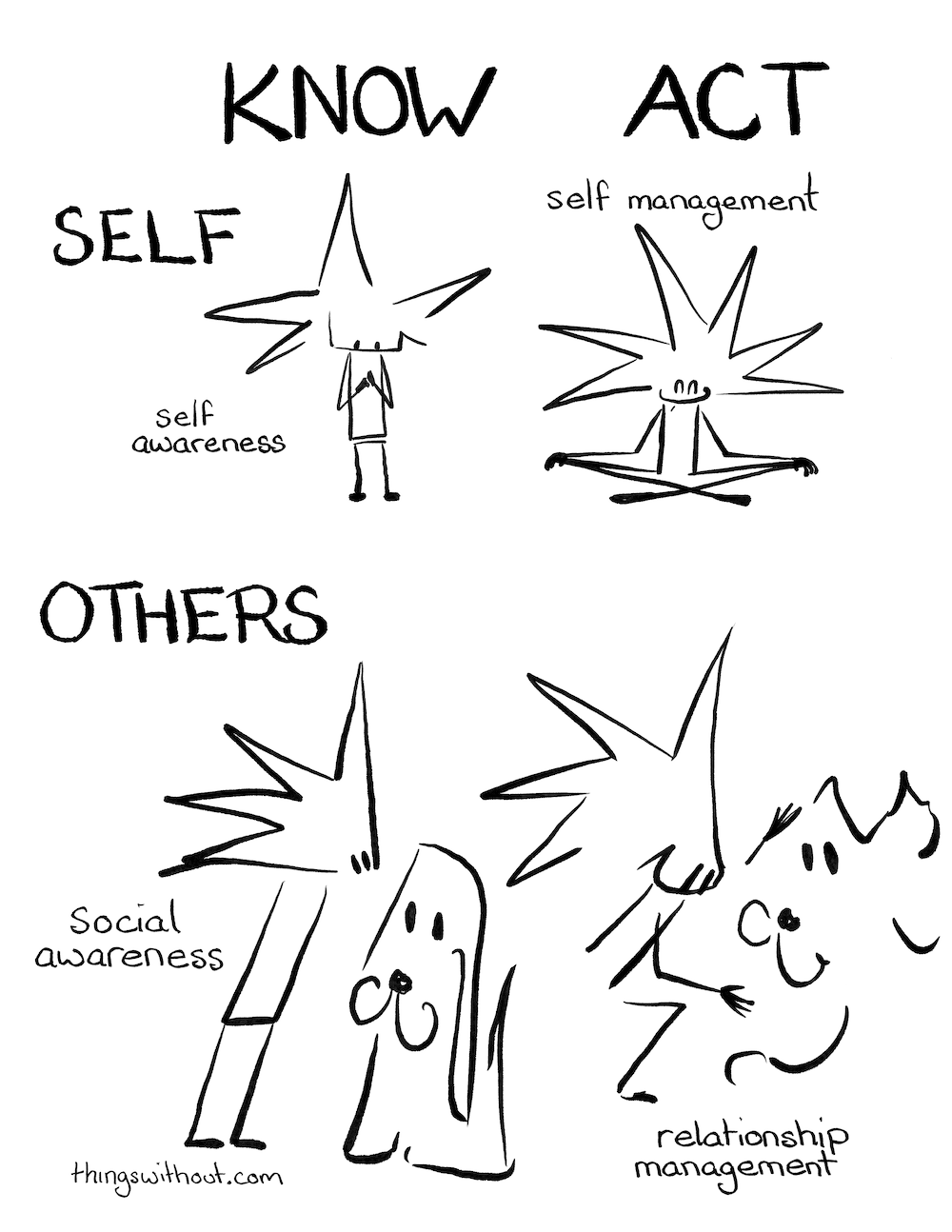The value of emotional intelligence in technical writing
IQ predicts how well you'll do in your school years and how much salary you can make over the course of a career because it says what job you can get... but once you're in those professions everybody else is about as smart as you are, and that is where emotional intelligence kicks in. - Daniel Goleman
Many technical writers are fairly empathic people. To be good at our job, we need to care about user experiences, we need to be able to imagine different scenarios and meet different needs. I know that I am sometimes better at understanding the needs of others more than my own. Other peoples needs are interesting puzzles, my own needs can feel more like irritants that get in the way of me doing stuff!

But, it turns out, if you don't honor all the aspects of emotional intelligence you're selling yourself short and creating problems for yourself. As Ramona Hacker points out, too much empathy can sometimes be a barrier to full emotional intelligence. The noise of so much empathy can drown out too many other parts or give the illusion of strong emotional intelligence when there are aspects that need more work.
Back in the day I may have bluntly asked a therapist, "Is it useful for me to know what exact emotions I'm having? Do they need a label?" She said yes, and while it made my neurodivergent brain feel tired and I'm not quite sure why there have to be quite so many emotions, and aren't the a cultural construct anyway? It has been a useful practice to get to know more about specific emotional variables.
So in this blog post, I'll list a few emotional intelligence resources I've particularly liked over the years, followed by the regular installment of media I'm enjoying.
Emotional Intelligence 101
Emotional Intelligence: The #1 ability for leaders
I love how Daniel Goleman breaks down the aspects of emotional intelligence in terms of how you know things and how you act, in relation to yourself or others.
6 Steps to Improve Your Emotional Intelligence
I love how Ramona Hacker talks about how empathy and emotional intelligence are not the same thing. Indeed, sometimes too much empathy can get in the way of well rounded emotional intelligence. I highly recommend her talk to anyone whose first thought about Emotional Intelligence is, "Can we please not talk about emotions?"
She poses some great questions to ask and some great habits to cultivate (including journaling, which helps to reduce infodumping as well!)
Self awareness
How to identify your emotions
Self management
Being resilient is more than brute forcing your way through. What skill am I missing, what can I learn to resolve this? This video has a great set of ideas and examples for anyone who wants to be a bit more of a badass who gets stuff done in a way that takes care of themselves or others.
Social awareness
Did I miss the memo? (Missing Information and Social Cues)
How to Read Social Cues Better
Relationship management
The Art of Active Listening
Not just how to listen effectively, but also what listening mode to use in different circumstances.
How to Force Yourself To Speak Coherently
An important part of relationships is to be able to talk clearly.
You must start poorly!
The 60 seconds that make or break a conversation
I'm sure none of us here struggle to immediately get to the point of a conversation, and never ramble, but just in case you do ;-)
Media I'm enjoying
- Not-boring Tech Writer (Kate Mueller), Kate sounds off on “good” documentation
- I love how Kate Mueller does reflection episodes. In a world that's go go go, she takes the time to revisit conversations and reflect on things. It's powerful stuff, and really beautiful to see how conversations can lead to conversations that lead to lovely things.
- passo.uno (Fabrizio Ferri Benedetti):
- The Columbo Technique for Technical Writers
- Columbo has magnificent emotional intelligence. It might be one of my favorite Fabrizio blog posts, as I definitely like channelling my inner Columbo.
- How I write docs quickly
- AI must RTFM: Why technical writers are becoming context curators
- The Columbo Technique for Technical Writers
- Big Think (Kim Scott), Radical Respect at Work | YouTube
- Tara McMullin, How to rethink work stress | Article
- "Hatchuel argues that this high reliance on others combined with the ambiguity around one's job increases work intensity. Further, adjusting that intensity is more complicated because the work processes involved are often personal and unarticulated rather than physically observable" - sound familiar?
Want to read more blog posts?
Subscribe to my newsletter to be emailed whenever I do an update!
